The 1st Session of 3rd UNESCO-ICHEI Governing Board Convened
On December 9th 2023, the third Governing Board (GB) of the International Centre for Higher Education Innovation under the auspices of UNESCO (UNESCO-ICHEI) convened its first session in a hybrid mode at the Southern University of Science and Technology (SUSTech) in Shenzhen, China.
The participating GB members included (in alphabetical order) Mr. CHENG Jiangang, Professor at Institute of Education of Tsinghua University; Mr. Firmin Edouard Matoko, former Assistant Director-General for Priority Africa and External Relations of UNESCO; Ms. GE Siying, Director of the Office of General Affairs of the Chinese National Commission for UNESCO (on behalf of Mr. QIN Changwei, Secretary General of the Chinese National Commission for UNESCO, and member of UNESCO-ICHEI Third Governing Board); Mr. JIN Li, Director of UNESCO-ICHEI; Mr. LIM Cher Ping, Chair Professor of Learning Technologies and Innovation at Education University of Hong Kong, China; Mr. TANG Qian, Former Assistant Director-General for Education of UNESCO; and Mr. WANG Duanrui, Chairman of the Hong Kong Industry and Commerce Association. The session was presided over by Mr. ZHANG Ling, Vice Chairperson of the University Council of SUSTech.
Also present at the meeting were Mr. LI Ming, Secretary-General of the International Institute of Online Education (IIOE) Secretariat and founding Director of UNESCO-ICHEI; Mr. LIANG Jiansheng, Executive Deputy Director of UNESCO-ICHEI; Ms. HAN Wei, Executive Deputy Director of the IIOE Secretariat and former Executive Deputy Director of UNESCO-ICHEI; Ms. BI Xiaohan, Deputy Director of UNESCO-ICHEI; and other members of UNESCO-ICHEI.
Three issues constituted the GB meeting’s agenda: 1) UNESCO-ICHEI’s work report for 2023; 2) Report on the budget execution of UNESCO-ICHEI in 2023; and 3) Strategic Plan of UNESCO-ICHEI (2023-2031). The GB also deliberated on and approved the revised UNESCO-ICHEI Constitution.

Deputy Director Bi Xiaohan presented UNESCO-ICHEI’s work report for 2023. Renewed by UNESCO as a Category Ⅱ Centre under the auspices of UNESCO, UNESCO-ICHEI welcomed a new eight-year period by signing the corresponding Agreement. This year, UNESCO-ICHEI continued to develop flagship projects such as the IIOE, arming its platform with new features such as Intelligent Personal Assistant (iTA) powered by generative AI, along with an improved mix of software and hardware that better supported partner universities in higher education digital transformation. A total of 11 IIOE National Centres across Asia and Africa rolled out localised and customised training programmes, as these National Centres went on to facilitate the engagement of local universities in educational policy dialogues with policy outputs.
Meanwhile, UNESCO-ICHEI continued to engage in practical cooperation with partners, including UNESCO regional offices, UNESCO Category 1 Institutes, and other international organisations, to conduct research on regional educational digital transformation. UNESCO-ICHEI also launched multilingual training programmes in French, Arabic, and Russian-speaking regions. In terms of boosting international exchanges, UNESCO-ICHEI lent its strength in multilateralism to its host city of Shenzhen and local universities there through events such as a symposium on international cooperation among Shenzhen universities. In terms of helping enterprises go global, UNESCO-ICHEI explored the export of improved digital infrastructure overseas, including AI labs, in addition to the existing corporate donations of Smart Classrooms. The cases and best practices that UNESCO-ICHEI gleaned in the creation of a global higher education alliance are reflected in its newly-released White Paper on Higher Education in the Era of Artificial Intelligence (Draft).

Executive Deputy Director LIANG Jiansheng reported on the 2023 budget execution of UNESCO-ICHEI. Statistics showed that the overall budget execution of UNESCO-ICHEI was satisfactory, with income and expenditure in strict compliance with regulations, as UNESCO-ICHEI continued to diversify funding channels to ensure sound and sustainable development.
Mr. LIANG moved on to report on the Strategic Plan of UNESCO-ICHEI (2023-2031). Over this period, UNESCO-ICHEI will further enrich the core functions of the IIOE platform with diverse and quality open educational resources (OER) in better service of the IIOE alliance. With a focus on IIOE National Centres, UNESCO-ICHEI aims to facilitate high-level policy dialogues among governments, international organisations, and higher education institutes (HEIs), to create a mechanism for policy dialogue and outputs. UNESCO-ICHEI plans as well to assemble a high-level expert team, to transform itself into a think tank for higher education digital transformation, with capacity in collaborative research. UNESCO-ICHEI will also expand quality, diverse, and fruitful partnerships with HEIs, businesses, and other stakeholders. To ensure these achievements, UNESCO-ICHEI is to reinforce its internal governance, human resources, and funding.
Next, Mr. LIANG reported on the rigorous revision of the UNESCO-ICHEI Constitution in accordance with the requirements of government departments. The revised Constitution is based on the Tripartite Agreement signed by UNESCO, the Chinese Government, and UNESCO-ICHEI, and also on the practicalities of UNESCO-ICHEI. Upon deliberation, the revised Constitution was approved by members of the GB.

The participating GB members discussed the above reports with appreciation of the work and achievements of UNESCO-ICHEI in the past years, before presenting their opinions and proposals for future work.
Mr. TANG Qian expressed the hope that UNESCO-ICHEI would formulate a long-term plan that boosts China's engagement in international higher education cooperation and human resources development in international organisations, so as to contribute Chinese talents, solutions, and wisdom to the international community in the interest of global benefits. In the new development stage, it is advisable that UNESCO-ICHEI should achieve breakthroughs through innovation, team building, better funding, the introduction of regular external evaluation, and other methods to consolidate its strategic plans.

Ms. GE Siying encouraged UNESCO-ICHEI to leverage its strengths in alignment with the UNESCO global priorities, China's goals of modernization and educational development, and local education reform and development in Shenzhen. Tapping the potentials in international talent development as a Category 2 Centre, UNESCO-ICHEI may make greater contributions to the global campaign to transform and share quality higher education. The Chinese National Commission for UNESCO also pledges continued support for UNESCO-ICHEI.
Mr. WANG Duanrui noted the accomplishments over the past 7 years by UNESCO-ICHEI, and its promising future that springs from visions, projects, and supporting measures, as showcased in the newly formulated Strategic Plan. Weidong Cloud Education Group intends to strengthen collaboration with UNESCO-ICHEI, particularly in deploying Smart Classrooms along the 'Belt and Road' countries, while seeking to expand teacher training programmes through AI-driven initiatives such as 'AI Smart Courses'. The collaboration is believed to give scope to the enterprise.


Citing the efforts by UNESCO-ICHEI to build a global higher education alliance that "Leaves No One Behind", Mr. Matoko highlights UNESCO-ICHEI's alignment with the UNESCO priorities in Africa and gender inclusion through the contributions to education infrastructure in Africa and the capacity-building of female teachers globally. Building on its unique share in promoting balanced higher education worldwide, UNESCO-ICHEI is expected to enjoy further achievements in the UNESCO family.

Mr. CHENG Jiangang shed light on the fruitful year of 2023 and the ambitious but challenging 8 years ahead. Drawing on existing initiatives, UNESCO-ICHEI may develop high-level research on digital transformation that provides quality projects and international cooperation. Such study may be achieved with the integration of relevant disciplines, such as educational technology, higher education studies, education economics, and education management; a high-level international research team; and technical expertise in enterprises.

Mr. JIN Li expressed gratitude to the GB members for their comments, and to the opportunity to take on the role of Director from Mr. LI Ming, the founding Director. He acknowledged the remarkable achievements of UNESCO-ICHEI in the past and recognized the challenges and responsibilities ahead. Going forward, UNESCO-ICHEI will base its continued success on the joint commitments from the GB members, the leadership, the panel of experts, and all colleagues.

Ms. HAN Wei conveyed her profound honor in deeply engaging in the growth of UNESCO-ICHEI over the past 7 years. The accomplishments garnered during this period stand as a testament to the collective efforts. By undertaking the new role within the IIOE Secretariat, Ms. HAN Wei pledged commitment to UNESCO-ICHEI's founding missions and future success. Her objective is to guarantee that UNESCO-ICHEI will forge ahead with consistent momentum over the ensuing 8 years.

Mr. LI Ming highlighted that the Third Governing Board is featured with a contingent of high-level and interdisciplinary experts. He is convinced that the GB will steer UNESCO-ICHEI towards a tight alignment with UNESCO strategic visions, and guidance from the Chinese National Commission for UNESCO. He also emphasised the significance of crafting close ties with domestic and international education experts, HEIs and enterprises, which leads to more rewarding partnerships. It is believed that the new leadership of UNESCO-ICHEI, endowed with an international perspective and extensive experience, will boost the sustainable development of UNESCO-ICHEI with diverse financial, human, and technological resources.

Mr. ZHANG Ling concluded by expressing that the GB members and leaders of UNESCO-ICHEI have collectively outlined a promising future. He recommended that UNESCO-ICHEI should further refine its eight-year plan, and work towards its implementation for substantial and enduring progress.





